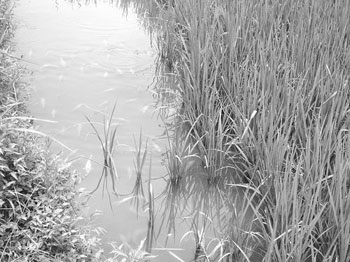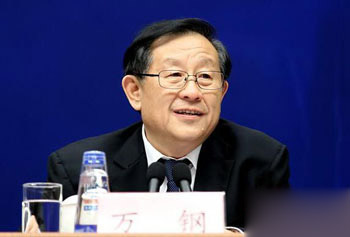Farming is his father.
Original title: who is the protagonist of leisure agriculture

Rice field fish culture (Photo Source: Baidu Photo)
Recently, the Ministry of Agriculture once again proposed to vigorously promote the development of leisure agriculture and rural tourism by strengthening the construction of the brand system, and stressed that brands should be used to lead the development of leisure agriculture and rural tourism, with emphasis on building a brand system of leisure agriculture and rural tourism.
Experts interviewed by the China Science News believe that since the pilot project of national leisure agriculture and rural tourism was carried out in 2010, China's leisure agriculture and rural tourism are still in the primary stage of exploration. it is an effective means to improve the development level of leisure agriculture and rural tourism through brand cultivation and demonstration, but in the process of its development, we should pay attention to distinguish the relationship between agriculture and tourism.
Drive the development of one side
What is leisure agriculture? Leisure agriculture is to expand the functions of agricultural sightseeing and leisure, cultural inheritance and the popularization of science and technology, focusing on the process of agricultural production, farmers' working life and rural customs and features, through innovation, creativity and creation to make people taste agricultural sentiment, enjoy pastoral life, experience agricultural culture, and promote the integrated development of primary, secondary and tertiary industries in rural areas.
Zong Jinyao, director of the Agricultural products processing Bureau of the Ministry of Agriculture, said that the development of leisure agriculture in China is not long, but with the vigorous promotion of governments at all levels and agricultural departments and the strong pull of market demand, the scale of the national leisure agriculture industry is expanding day by day, the connotation of development is constantly improving, the types of development are gradually enriched, and the mode of development is gradually changing.
Li Guoxiang, a researcher at the Institute of Rural Development of the Chinese Academy of Social Sciences, said in an interview with reporters that rural tourism and leisure agriculture in some places have developed rapidly and become the pillars of the local economy.
According to data from the Ministry of Agriculture, leisure agriculture and rural tourism received more than 2.2 billion tourists in 2015, with operating income exceeding 440 billion yuan and 7.9 million employees, including 6.3 million farmers, benefiting 5.5 million farmers. During the 12th five-year Plan period, the number of tourists received and business income grew at an average annual rate of more than 10%.
Ke Youpeng, director of Hainan Institute of Tropical Agriculture and Rural economy and professor of Hainan University, told China Science Daily that the government has given great support to this. In order to promote the development of leisure agriculture and rural tourism, the Ministry of Agriculture and the National Tourism Administration have cultivated 100 national leisure agriculture and rural tourism demonstration counties and 300 national leisure agriculture demonstration sites in three years since 2010. As of 2015, demonstration counties and sites have been identified.
Xinxian County, Henan Province is one of the first batch of national leisure agriculture and rural tourism demonstration counties. The county is located in the hinterland of the Dabie Mountains. Although it is a key county in the national poverty alleviation and development work, its good ecological environment has also led to the development of tourism, receiving 2 million tourists a year.
Luo Zhaocheng, deputy head of the leading group and director of the office of the rural reform experimental area of Xinxian County, introduced to the China Science Daily that Xinxian County spans the two major basins of the Yangtze River and Huaihe River, with beautiful mountains and rivers, beautiful countryside, and simple folk customs. It is very suitable for the development of rural tourism. "the rural tourism industry is also one of the five leading industries for the future development of agriculture in Xinxian County."
But at present, brand cultivation and demonstration creation are a headache everywhere, "the effect of implementation in recent years is not very obvious." Jia Dameng, deputy director of the China County Economic Research Center of China Agricultural University, said in an interview with reporters that this is one of the projects promoted by the Ministry of Agriculture.
Is it tourism or production?
In Zong Jinyao's view, the development practice of various places has further demonstrated the economic function of leisure agriculture to increase income, the social function of promoting employment, the cultural function of protecting and using the cultural function of inheriting agricultural civilization, and the ecological function of beautifying the rural environment. We will promote the transformation of a large number of agricultural areas into "scenic spots", pastoral areas into "parks", and agricultural products into commodities.
"Brand is one of the cores of agriculture. There are several formats worth paying attention to in leisure agriculture, and we are doing well at present." "Agricultural theme parks and manor economy are the main forms of business, and it is also a trend of leisure agriculture," Jia said. "
Take "Yangjiale" as an example, it started with the "small Garden" in Beijing, sprang up in Moganshan Town, Deqing County, Zhejiang Province, and now has become an important brand of leisure agriculture and rural tourism in Deqing County. And in a short period of time in the Yangtze River Delta, Pearl River Delta, Beijing-Tianjin-Hebei and other places to develop rapidly.
It is understood that "Yangjiale" practices the low-carbon concept, integrates the natural factors of the original ecology, and uses local materials to decorate naked, providing tourists with a sense of intimacy to return to nature.
At the same time, the Ministry of Agriculture actively encourages and supports all localities to adapt measures to local conditions, explore new forms and new carriers to promote the development of leisure agriculture and rural tourism, and hold agricultural festivals with distinctive features, great influence and strong public welfare. such as agricultural carnival, agricultural park, star farm (farm), creative agricultural boutique and so on.
And this has also been questioned by people in the industry. "the Ministry of Agriculture has also begun to engage in tourism!" In Jia Dameng's view, there is no problem with the combination of tourism and agriculture, and the key is to recognize the relationship between the two.
"it is difficult to tell whether agriculture in some places is the primary industry or the tertiary industry." Li Guoxiang has a similar analysis.
In addition, the Ministry of Agriculture also requires that the establishment of national leisure agriculture and rural tourism demonstration sites, the promotion of the most beautiful leisure villages in China, and the pilot creation of beautiful villages in China should be integrated into the promotion activities of beautiful leisure villages in China to create a number of beautiful leisure villages (towns) with blue sky, green land, clean water, living in peace, working happily and increasing income.
But in fact, some enterprises do not pay much attention to this, there is no brand awareness, "what is leisure agriculture is not very clear, let alone the brand, there is no motivation." Jia Dameng told China Science Daily.
Agriculture should not play a supporting role.
In Jia Dameng's view, in the process of the development of leisure agriculture and rural tourism, it should be clear that the carrier is agriculture and tourism is only a means. "when it comes to tourism, people will mention the six elements of tourism: food, housing, transportation, travel, shopping and entertainment. Leisure agriculture should pay attention to these."
In the view of Zhu Qizhen, director of the Farmers' Research Institute of China Agricultural University, excluding farmers and rural tourism, such as some sightseeing parks and agricultural theme parks, does not solve rural problems, but to meet the creative desire of a small number of elites and the needs of the rich to enter the countryside to obtain a pleasant living environment, and it is also difficult to reflect the function of protection and inheritance of village culture.
In fact, as far as the protection of village culture is concerned, the development of rural tourism and agricultural tourism may be a more realistic way. Zhu Qizhen believes that in the contradiction between economic development and village protection, the revitalization of rural tourism and traditional handicrafts is considered to be an effective way to bridge the two.
Longxian Village, Qingtian County, Fangshan Township, Zhejiang Province, after possessing the label of world agricultural cultural heritage, there is an endless stream of tourists from Hangzhou, Shanghai and other places. Its unique fish culture, folk culture and overseas Chinese culture have effectively promoted the development of eco-tourism, and the annual income of tourism has reached more than 2 million yuan.
"as a result, farmers who directly benefit from the economy also feel the importance of continuing to maintain the tradition and way of life of rice and fish farming." Zhu Qizhen told China Science Daily.
At present, the area of rice and fish farming in Fangshan Township has expanded to more than 5000 mu, and some young people have therefore stayed in the village for development.
- Prev

Xinning, Hubei: the song of getting rich with the fragrance of Xiangshan navel orange
Xinning, Hubei: the song of getting rich with the fragrance of Xiangshan navel orange
- Next

Wan Gang: realizing all-round innovation and scientific innovation is the core.
Wan Gang: realizing all-round innovation and scientific innovation is the core.
Related
- A course of planting techniques and methods on how to grow carrots
- How to plant the latest tulips?
- Is it better to pick tea in the morning or in the afternoon? When is the best time for tea to be picked? what is the third or fifth tea?
- Launch Yuanxiao Happy combination Haocha + Tea Yuan healthy Taste
- Penghu Tourism "Fireworks 20 Parade with You"
- 2022 West Lake Happiness holds "Digital Revitalization Voucher" and draws iphone13 and laptop.
- Banqiao Fuzhou social houses are designed to change start-up combined with police elimination to create a safe and livable environment
- The convenient measure of "mechanical weeding" in Xinbei has been abused and the Agriculture Bureau has imposed heavy penalties on the illegal land consolidation.
- Changgeng University Joins Hands with Four Memory Factories to Rescue Memory Talent Shortage
- The list of Taiwan's top 100 MVP managers is listed by the Director-General of the Farmers' Association of Sanxia District.

